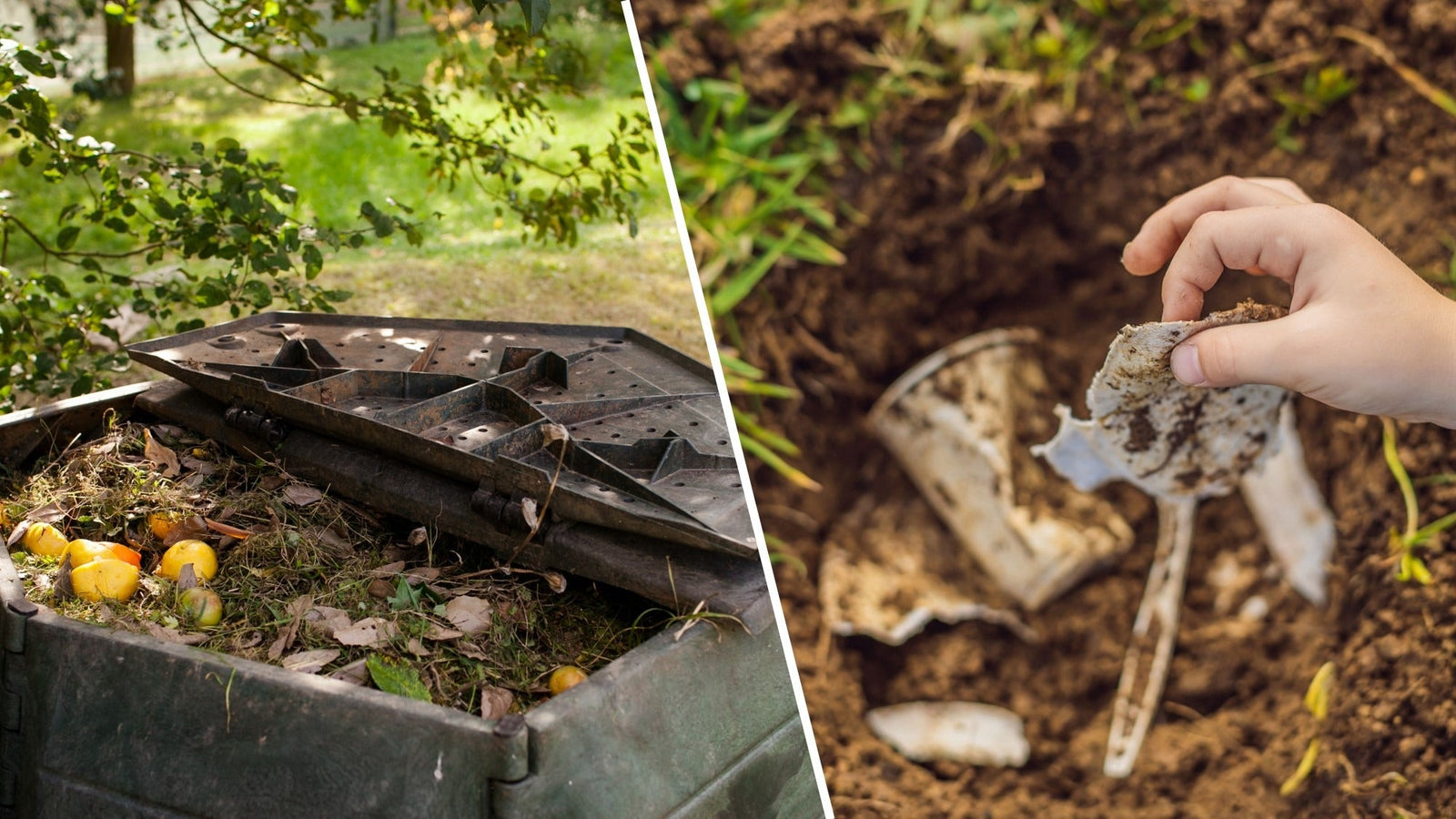The terms “biodegradable” and “compostable” are everywhere—on product packaging, in marketing campaigns, and across eco-friendly labels. But here’s the problem: many people use them interchangeably, and companies often exploit this confusion to appear greener than they really are.
While both terms suggest that a product will eventually break down, there are critical distinctions that determine how eco-friendly the material truly is. Understanding these differences not only helps you make informed choices as a consumer, but also shields you from falling victim to greenwashing.
In this article, we’ll take a clear, in-depth look at compostable vs. biodegradable, explain why it matters, and show you how to identify products that genuinely make a positive environmental impact.
Defining Biodegradable
At its core, the word biodegradable means that a material can be broken down by microorganisms (bacteria, fungi, algae) into smaller components over time. That sounds promising, but here’s where the confusion comes in:
-
No timeframe is specified. A biodegradable item could take a few months—or several centuries—to break down.
-
Not always safe for the environment. Some products labeled “biodegradable” don’t disappear into harmless substances. Instead, they may degrade into microplastics that persist in soil, rivers, and oceans.
-
Depends on conditions. A product may technically biodegrade, but only under very specific environmental conditions that aren’t always met in landfills or the natural world.
For example, a “biodegradable plastic bag” might eventually break down into smaller pieces, but those pieces can linger for decades, polluting ecosystems and harming wildlife.
In short: biodegradable is a broad, often misleading term. It does not guarantee that a product is truly eco-friendly or will disappear safely.
Defining Compostable
Compostable takes things much further. A compostable product isn’t just about breaking down—it’s about turning into something valuable.
-
Breaks down within a specific timeframe. Certified compostable items typically decompose in 90 to 180 days under proper composting conditions.
-
Creates nutrient-rich soil. Instead of leaving harmful residue, compostable products return to the earth as organic matter that enriches soil.
-
Requires the right conditions. Many compostable products are designed to be processed at industrial composting facilities, which provide the heat, microbes, and moisture needed for efficient breakdown.
Certification is key. Organizations like the BPI (Biodegradable Products Institute) in the U.S. or EN 13432 in Europe verify whether a product meets strict compostability standards. These certifications ensure that compostable items won’t just disintegrate, but actually transform into compost that benefits the environment.
The Dangers of Greenwashing
Because consumers want sustainable options, companies often use “biodegradable” as a marketing buzzword—even when their products don’t truly reduce environmental harm. This practice, known as greenwashing, misleads consumers into making purchases that may still damage the planet.
Some examples include:
-
Biodegradable plastics that require high-heat industrial facilities to break down, but are marketed as if they’ll decompose naturally in any setting.
-
Vague claims like “eco-friendly” or “earth-safe” with no certifications or supporting data.
-
Products breaking into microplastics instead of fully decomposing, despite carrying a “biodegradable” label.
This confusion undermines consumer trust and slows real progress toward sustainability. That’s why it’s critical to understand the difference and look for certified compostable products whenever possible.
Why Compostable is the Better Choice 🌱
When it comes to reducing waste and creating a positive impact, compostable products are superior to biodegradable ones.
Here’s why:
-
No harmful leftovers – Certified compostable products break down fully into organic matter, leaving no toxic residues or microplastics.
-
Creates a resource, not waste – Compost enriches soil, improves crop yields, and reduces the need for chemical fertilizers.
-
Supports a circular economy – Instead of a linear “take, make, dispose” model, compostable products close the loop by returning nutrients to the earth.
-
Aligns with regulations – As governments around the world implement plastic bans, compostable alternatives offer a compliant and forward-thinking solution.
Companies like EQUO are leading the way, offering compostable cutlery, straws, and packaging made from natural materials like sugarcane, coffee grounds, and coconut. These products don’t just reduce waste—they actively support soil health when composted properly.
How to Identify and Use Compostable Products
As a consumer, how do you make sure you’re choosing the right products—and disposing of them correctly? Here’s a simple guide:
1. Look for Certifications
Check packaging for reputable certifications such as:
-
BPI Certified Compostable (U.S.)
-
EN 13432 (Europe)
-
OK Compost from TÜV Austria
These logos ensure the product meets strict compostability standards.
2. Understand the Conditions
-
Industrial Composting: Many compostable products require commercial facilities for proper breakdown. Check if your city has compost collection services.
-
Home Composting: Some products are certified for backyard composting, which requires lower heat and less processing.
3. Dispose Responsibly
-
Never mix compostables with recycling – They contaminate the recycling stream.
-
Avoid landfills – Compostables won’t properly break down in oxygen-starved landfill environments.
-
Use compost bins – When possible, put compostable products in a green bin for municipal composting or your own backyard system if certified for home use.
4. Support Businesses That Go Compostable
By choosing restaurants, cafés, and brands that use compostable packaging and utensils, you encourage a wider shift toward sustainable practices.
Conclusion
The difference between biodegradable and compostable isn’t just about semantics—it’s about impact. While biodegradable products may eventually break down, they often leave behind harmful microplastics or take centuries to disappear. Compostable products, on the other hand, decompose within months into nutrient-rich soil, helping close the loop of waste and creating real environmental benefits.
As consumers, the power lies in our choices. By looking for certifications, disposing of items responsibly, and supporting brands like EQUO that prioritize compostable solutions, we can push industries away from misleading labels and toward genuine sustainability.
Because at the end of the day, it’s not just about products breaking down—it’s about what they become when they do. And when waste turns into life-giving soil, that’s a future worth investing in.


